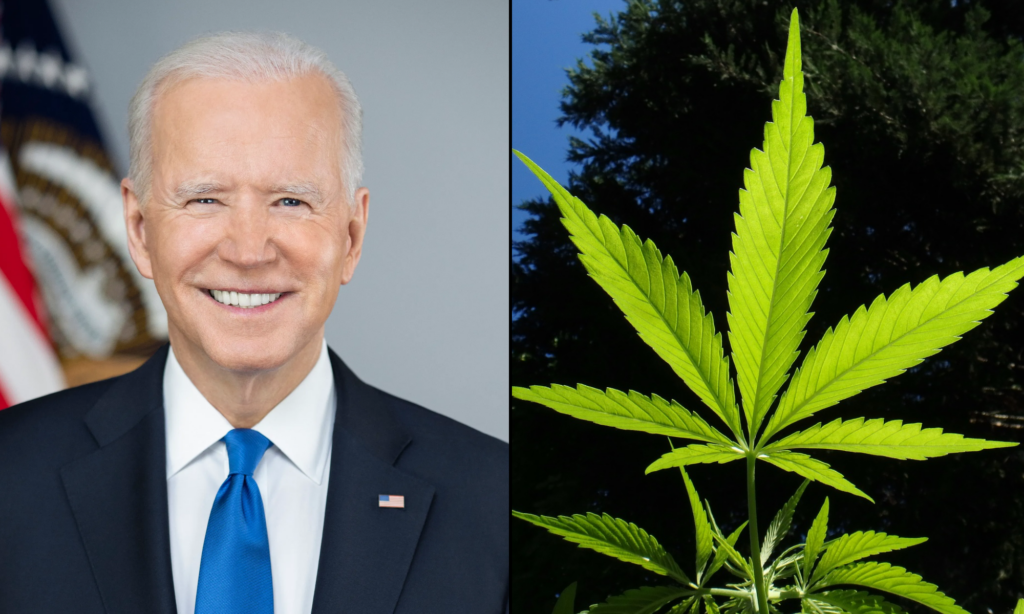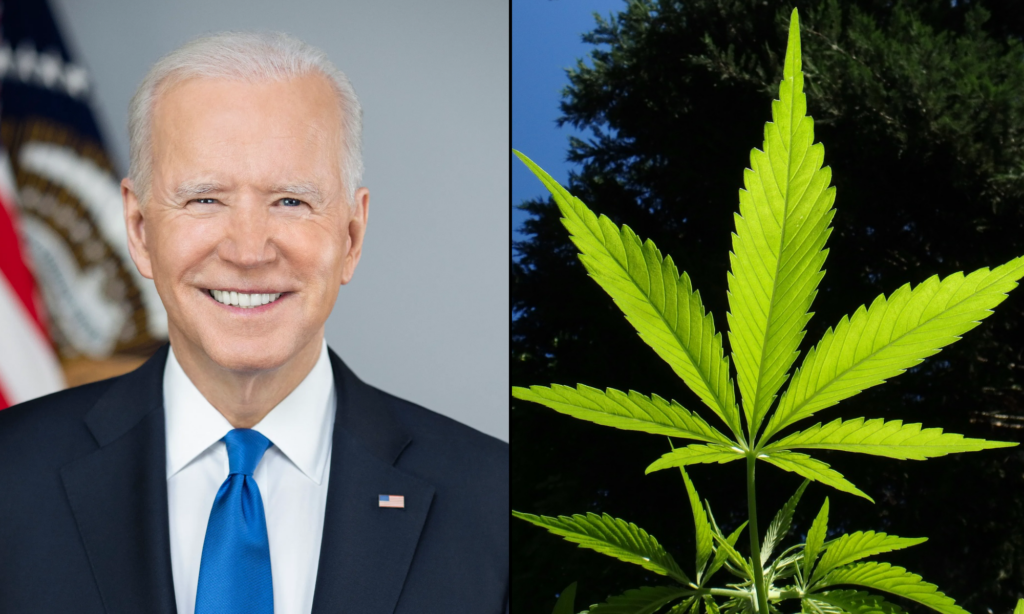
A coalition of 14 Democratic congressional lawmakers is urging President Joe Biden to significantly expand his marijuana pardons and issue updated guidance to formally deprioritize federal cannabis prosecutions before his administration comes to an end.
In a letter sent to Biden and Vice President Kamala Harris on Monday, Sen. Elizabeth Warren (D-MA) and Rep. Barbara Lee (D-CA) led a dozen of their colleagues in making the request, while applauding the president’s past pardons and role in directing a marijuana rescheduling review that led the Justice Department to propose moving cannabis from Schedule I to Schedule III of the Controlled Substances Act (CSA).
“Moving marijuana to Schedule III represents progress, and we urge the Drug Enforcement Administration to complete that process as soon as possible. But it will not end federal criminalization, resolve its harms, or meaningfully address the gap between federal and state cannabis policy,” they said. “Possession and use of recreational marijuana—and much state-legal medical marijuana—will continue to be a violation of federal law.”
“The Biden Administration has the opportunity to further reduce the harms of marijuana’s criminalization before the end of this Administration by issuing another round of clemency and an updated memorandum on prosecutorial discretion for marijuana offenses,” the letter, which was first reported by Rolling Stone, says.
The lawmakers said that while Biden deserves credit for issuing mass pardons for people who’ve committed federal marijuana possession offenses, those actions “have resulted in virtually no releases from prison, because few individuals were in federal prisons for these low-level offenses.” There are still thousands of people incarcerated over non-violent federal cannabis convictions.
“President Biden should issue broader clemency—including another round of pardons and commutations to reduce sentences or end terms of incarceration—for individuals convicted of other cannabis-related offenses,” the lawmakers wrote. “Additionally, the President should again urge state governors to expand marijuana clemency and decriminalize low-level marijuana conduct under state law.”
The second part of their request is for Biden to issue a memorandum to “deprioritize seizing marijuana and prosecuting individuals and businesses for state-legal marijuana activity.” While federal prosecutions over cannabis have steadily declined amid the state-level legalization movement, “the threat of a federal conviction persists,” they said, and criminalization has continued to enforced in a racially disparate manner.
They also noted that Customs and Border Protection (CBP) “recently seized large amounts of state-legal cannabis at border patrol checkpoints, even dozens of miles into the interior of the country,” referencing a controversy still playing out in New Mexico.
“This memorandum should direct federal law enforcement to deprioritize prosecutions of any future marijuana offenses that have been the basis of prior federal pardons, and deprioritize prosecutions of personal cannabis activities and cannabis activities that comply with state or Tribal law,” the letter says.
“During the Biden Administration, DOJ has assured that an updated Cole Memo is forthcoming, yet one has not yet been issued,” the lawmakers said, referencing Obama-era guidance on federal marijuana enforcement priorities. New memoranda should be “promptly” issued and expanded to cover “marijuana acts that federal prosecutors and law enforcement officers are directed to deprioritize and make prevention of racial disparities in enforcement and prosecutions an explicit priority.”
“Rescheduling marijuana and the prior round of pardons must not be the end of this Administration’s historic work to use its executive authority to undo the damage of federal marijuana policy. As we continue to work toward legislation to end the federal criminalization of marijuana and to regulate it responsibly and equitably, we urge prompt administrative action to tackle the harms of criminalization—particularly for the benefit of communities most harmed by the War on Drugs. Thank you for your attention to this important matter.”
Signatories on the letter also include Sens. Bernie Sanders (I-VT), Cory Booker (D-NJ), Ron Wyden (D-OR), John Hickenlooper (D-CO), Kirsten Gillibrand (D-NY) and Ben Ray Lujan (D-NM), as well as Reps. Earl Blumenauer (D-OR), Ilhan Omar (D-MN), Jan Schakowsky (D-IL), Dina Titus (D-NV), Jim McGovern (D-MA) and Eleanor Holmes Norton (D-DC).
Warren, Lee and Wyden are separately promoting a drug policy reform group’s call for Biden or future administrations to issue an executive order to ensure equity in federal marijuana laws and more broadly shift the country away from the drug war.
Warren—who recently criticized President-elect Donald Trump for doing “nothing” on cannabis reform during his first term in office—said that so long as marijuana remains in Schedule I, “federal marijuana law will continue to have devastating consequences—particularly for communities most harmed by the War on Drugs.”
The Biden administration’s proposal to move cannabis to Schedule III of the CSA is ongoing. An initial hearing on the proposed rule is set for December 2, but an agency judge has signaled that the proceedings may not be completed before Trump takes office early next year.
Meanwhile, a coalition of 67 Democratic members of Congress has separately called on Biden to expand on his executive clemency work in the final months of his term, citing his past marijuana pardons as an example of his ability to provide “life-changing” relief to Americans.
Biden also recently discussed his administration’s cannabis actions and reiterated his belief that criminalization over minor marijuana offenses is an outdated policy during a speech at the Congressional Black Caucus Foundation’s (CBCF) 2024 Phoenix Awards Dinner.
Read the latest letter to Biden on expanding marijuana clemency and updating federal guidance below:
DEA Judge Rejects Veterans Group’s Petition To Participate In Marijuana Rescheduling Hearing
Marijuana Moment is made possible with support from readers. If you rely on our cannabis advocacy journalism to stay informed, please consider a monthly Patreon pledge.





